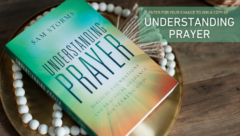My church has asked me (once again) to redesign our web site. This is going to be the fourth redesign of the site in the four years I’ve been at the church. Some of the previous changes have been initiated by myself, while others were at the bequest of the staff. This time it is mutual. In speaking to new members and to visitors we have found that nearly 100% of people who come to the church for the first time have first visited our web site. It is that important. It is the first or second point of contact for almost every person that walks through the doors. Before we have a chance to shake a hand or introduce ourselves, people have already met us via the web. So we want to be sure we are giving people the right message.
One phenomenon we have noticed is that many people who walk through the doors are already church-goers who have been attracted to what is happening in our church. While we are glad to see people show up, we are not eager to be part of the “sheep-stealing” that is endemic in evangelical churches. As I have indicated in the past, there are many big churches where well over ninety percent of the attendees have transferred from other churches. The Church Growth Movement, on the whole, has been an utter failure in drawing their target audience of unbelievers. Most big churches are built at the expense of smaller churches. Most exciting churches are built at the expense of old and dull ones. William Chadwick, an advocate of Church Growth who is nevertheless honest about its shortcomings has written an excellent book, Stealing Sheep, which should be required reading for pastors.
In the past weeks I have been thinking about how our church can create an advertising presence that is attractive to unbelievers or to those whom the Spirit is stirring, while at the same time being unattractive to the seemingly endless numbers of professed Christians who are bored with their current church or who are seeking only to move where there is more excitement. These people are a plague within Christianity. Sure there are many good reasons to abandon one church and join another, but more often than not people leave for all the wrong reasons. And before we continue, allow me to make on thing clear. By the words “advertising presence,” I do not refer to a marketing orientation within my church, but the little bits of advertising we do, be it a web site, an advertisement in the local newspaper or even the signs we put out on the road to guide people to our location. I have been pondering how we can leverage these to ensure they attract only the people we want to see walking through those doors.
Having hunted around the Internet I think it is safe to say that a lot, perhaps even the majority of church sites, are geared more towards Christians than unbelievers. Consider the following example. One church, situated in California, has the following information plastered front and center on the main page of their site. This is the first thing a visitor sees when he arrives at the site:
“We are a non-denominational, independent church in Eagle Rock, California that is prayerfully committed to the glory of God:
- by submission to the authority of the Scriptures
- through holy and loving ministry
- with our mission to proclaim the gospel of Jesus Christ throughout the world
We are grateful that you are visiting our website. Hope Bible Church is an independent, non-denominational congregation, gathered for the purpose of glorifying God by submission to the authority of Scripture, through holy and loving ministry, with our mission to proclaim the gospel of Jesus Christ throughout the world. We believe that by treasuring Christ we will be enabled to develop disciples, mobilize ministry, and produce praise.”
I do not wish to argue with any of that. I think it is wonderful that this church is committed to the authority of the Scriptures, to ministry and to fulfilling the Great Commission. But if we look at the verbiage on that page, to whom does it appeal? An unbeliever, looking for a church to attend, will be confused by all of the “Christianese.” There is little there to compel an unbeliever to visit the church. After all, he has no interest in proclaiming the gospel or in submitting to the authority of Scripture. These things mean nothing to him. It seems clear that the appeal of this church will be to peers – to other Christians. But by definition, they are the ones that least need to visit the church.
I did a Google search for Reformed Presbyterian Church and quickly found the Reformed Presbyterian Church in Ottawa which is a church I have often attended while visiting family in that city. The first thing the visitor sees at that site is, “The Ottawa Reformed Presbyterian Church is a member congregation of the Reformed Presbyterian Church of North America. We have two worship services each Lord’s Day (Sunday): the first is at 10am, and the second is at 5:30pm. From September through June we also have Sabbath School classes for all ages at 11:15am (immediately after our morning worship service).” This is not particularly bad, but it is also not particularly helpful to an unbelieving visitor. The average unbeliever has no interest in denominational affiliation and will only be confused by the use of the word “Sabbath.” I know that this church is outwardly focused and has a diverse congregation – yet the site does nothing to present that. Instead it provides information that will appeal largely to people who are already believers.
I found many other examples. How, as an unbeliever, would you deal with this, taken from another Presbyterian church? “We believe that God desires His church to set forth a clear statement of her doctrine supported from Scripture. We therefore accept as our subordinate standards (i.e. subordinate to the Bible), The Westminster Confession of Faith and the Larger & Shorter Catechisms. In addition to these doctrinal statements, we adhere to the Testimony of the Reformed Presbyterian Church of North America, which is our continuing application of God’s written Word to conditions today.”
Many of the more prominent churches led by big-name Reformed pastors do little better. Grace Community Church, home of John MacArthur, has the following message front and center: ” Thank you for visiting Grace Community Church online. The Mission of Grace Community Church is to glorify God and extend His kingdom by living and proclaiming His truth in the world. We encourage you to explore the many ministries and resources available to you 24 hours a day.” Bethlehem Baptist, John Piper’s church, has mostly administrative information (service times, job postings).
The point is clear: many of these churches are, probably unwittingly, writing introductions to their churches that appeal only or primarily to other believers. Lo and behold, they are then drawing only or primarily believers (or at least church-goers) to their churches. If I were to move to a new city and research a church this information would be helpful. If I grow tired of my current church or if the sermons are simply too challenging, this information will help me find a new church. But for the unbeliever who is looking for a church to attend, this will only add to the confusion.
The best I can do by way of analogy is to think of a time I began a new job. I had just finished graduated from a computer program at college and had found my first job. The first day I began that job was one of the most humbling days of my life. I was introduced to more new words and concepts than I knew existed. I had to immediately expand my vocabulary to include all sorts of terms related to telephone hardware and software and to many aspects of software development. I was so confused that had I had the opportunity, I might have walked right away. Certainly if these terms had been included in the job description I would never have applied for the position.
This makes me wonder just how many unbelievers are walking away from churches whose web sites only add to rather than clarify the confusion people must already feel when they begin to seek out a church.
While it is easy enough to err in this direction, churches can also go too far to the other side. The Meeting House, a popular church here in Oakville, greets visitors to their web site with a huge, bold print declaring “God Hates Religion!” They then say, “Do we have your attention?…Welcome to the website of The Meeting House – a church for people who aren’t into church! We’re a dedicated bunch of Christ-followers (the literal meaning of the word “Christian”) who are passionate about introducing others to the real Jesus of Nazareth. Rather than come to start a new religion, Jesus himself was very clear that he came to call us into a new intimacy of relationship with the Creator of the universe.”
I can’t say I’m too fond of blasting people with the message that “God hates religion.” I know it’s a catchy slogan and really something of a 21st century cliche, but God doesn’t hate religion – He just hates false religion. Christianity itself, no matter how we try to make it anything but, is a religion (not merely a relationship, as wonderful as this relationship is). It was simple enough to find many other churches that provided information that was patently false in their desire to attract people to their churches.
Many of the seeker-sensitive churches do a little bit better on their web sites, trying to gear them to unbelievers rather than church-goers. Some succeed and some fail miserably. Saddleback’s site greets the visitor with a simple message, “We’d love to have you join us for church at Saddleback this weekend. On these pages you’ll find info about our services and times, what’s happening for children and students, directions, clips of our messages and music, and much more. We want to make it easy to get to Saddleback, and enjoyable when you arrive! Remember: You Matter to God!” While I am not a big fan of the church, I can’t deny that they provide the type of message that will have some appeal to an unbeliever. The message clarifies rather than increases confusion.
Ultimately, and I hate to say this, the unbeliever is looking at a church to see what it can do for him. For unbelievers, church may be little more than a social function or may fit in the same category as a child’s baseball league – it is something to do to build character in the kids. People who do not believe are not looking for a church where they can learn about the London Confession or attend Sabbath school. But if you draw people to a church with the promise of all you will do for them – if you soft-sell them on Christianity – you will have to continue to cater to them. So churches need to find ways of making themselves attractive to unbelievers while still holding fast to the truth.
Our church has decided to focus on three areas that are as important to unbelievers as they are to us – community, family and self. We hope to show people in our community that the church can bring fulfillment in each of these areas. We intend to put almost nothing on the site that is “churchy.” We’re all tired of attracting the already-churched. So we hope to walk the fine line wherein we can hold fast to the truth of what Christianity is, while at the same time providing unbelievers with a message that will be attractive to them. We want to make people aware of what the church is doing, through God’s power, to make a positive impact on the community, to build stronger families, and to give individuals the one thing they need most – the saving message of Jesus Christ. We want to bring Good News by first being good news.










